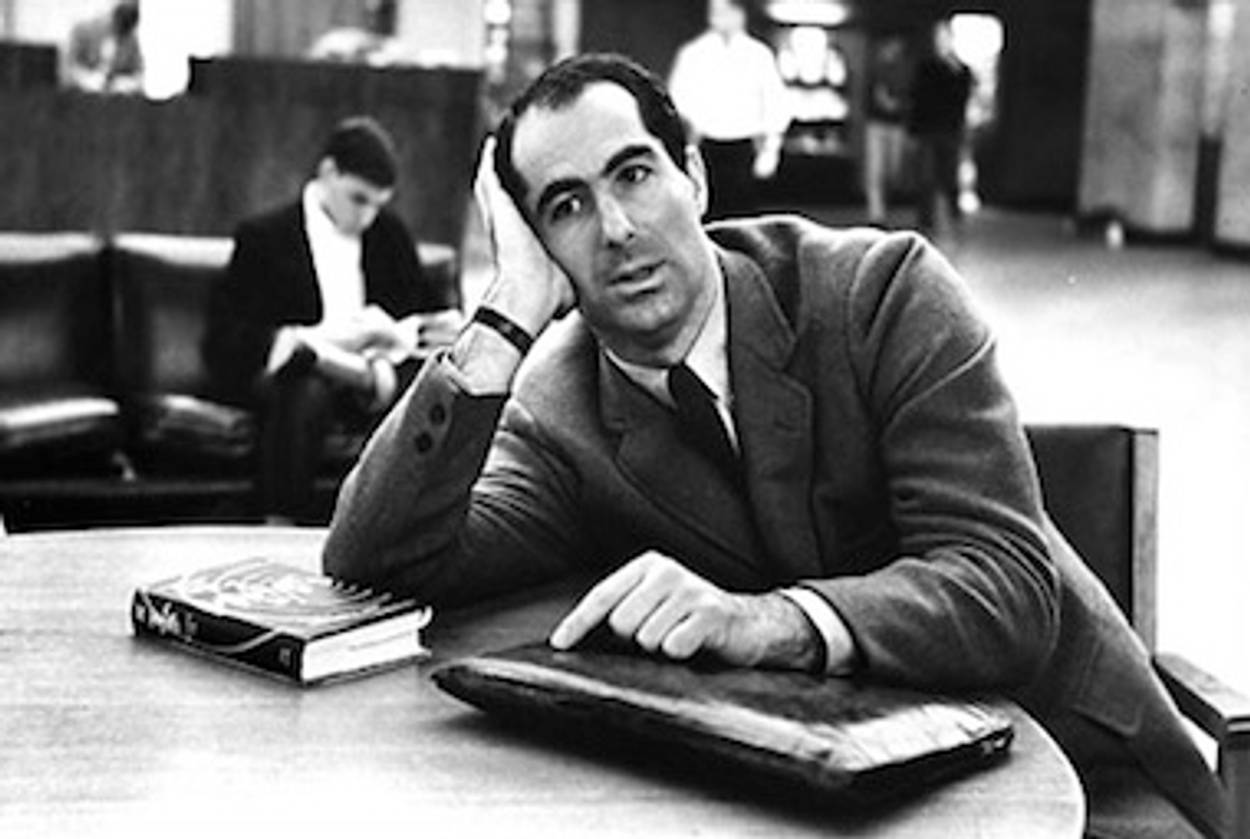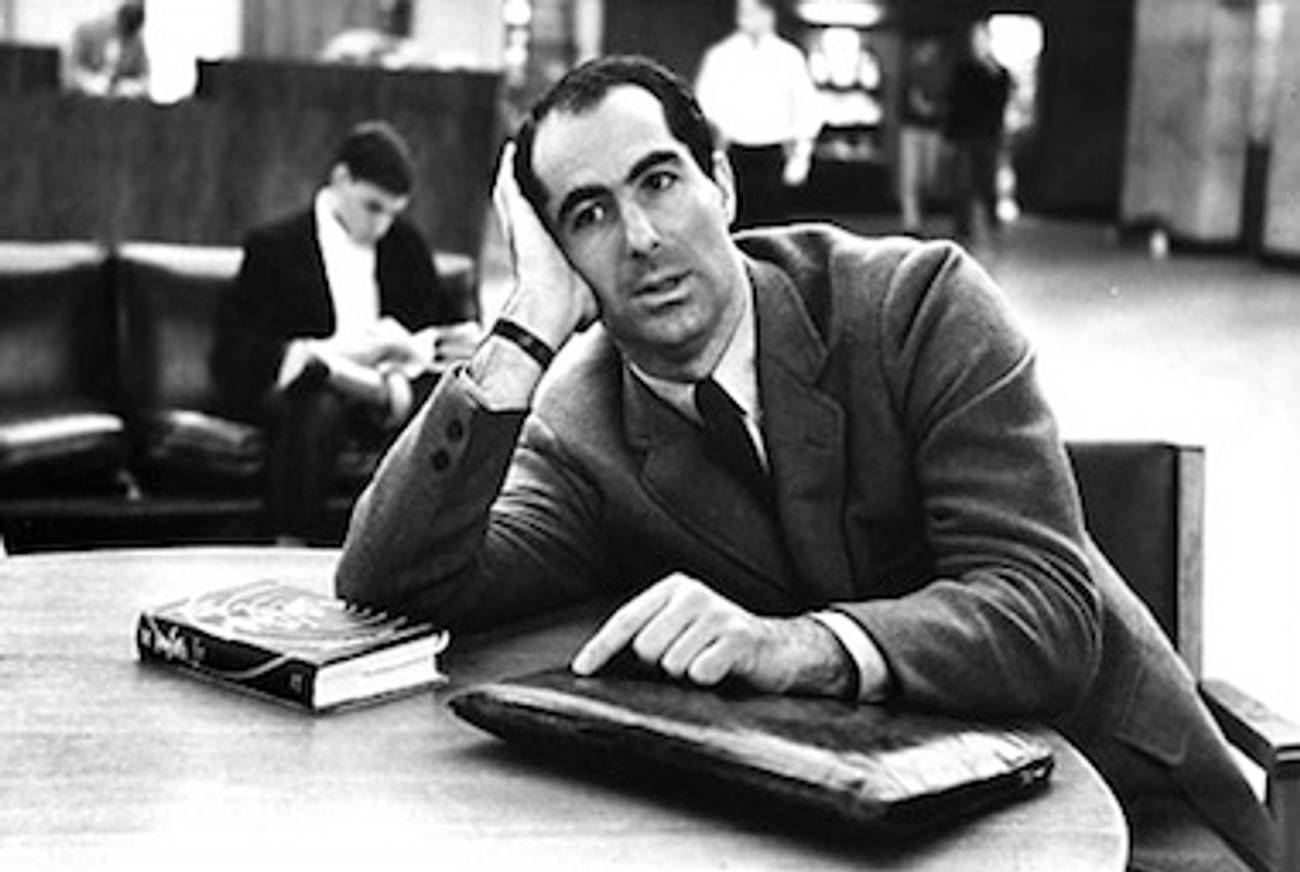Philip Roth Responds to Wikipedia
The author aims to set the record straight about ‘The Human Stain’




Earlier this week, the Times ran this gem of a headline–Philip Roth to Cooperate With New Biographer—in reporting that biographer Blake Bailey has been chosen to write the biography of Roth’s life.
After an intense vetting process usually reserved for high-level national security gigs, Bailey, who penned acclaimed biographies of writers like Richard Yates and John Cheever, won over Roth during exchanges like this:
According to Mr. Bailey, the first thing Mr. Roth wanted to know was what qualified a gentile from Oklahoma to write his biography. “I pointed out that I’m not an aging bisexual alcoholic with an ancient Puritan lineage and I still managed to write a biography of John Cheever,” he said.
It seems Roth, pound-for-brainy-pound the world’s greatest living writer (commenters, this is your cue), is paying focus to his legacy. The project with Bailey is expected to take a minimum of eight years and Bailey will be granted unlimited access to Roth’s archives and presumably Roth’s friends will be encouraged to make themselves available for interviews.
Not coincidentally, today The New Yorker published an open letter from Roth to Wikipedia about his book The Human Stain, which landed Roth the PEN Faulker Award among many plaudits and spawned a lackluster film adaptation. The letter starts with this:
Dear Wikipedia,
I am Philip Roth. I had reason recently to read for the first time the Wikipedia entry discussing my novel “The Human Stain.” The entry contains a serious misstatement that I would like to ask to have removed. This item entered Wikipedia not from the world of truthfulness but from the babble of literary gossip—there is no truth in it at all.
With a nod to Henry James, Roth goes on to explain the “germ” of his book The Human Stain with the aim of correcting a mistake in the Wikipedia entry about the book. The entry claims that the famous writer Anatole Broyard was the inspiration for Roth’s protagonist Coleman Silk. Amazingly, Roth’s attempt to refute the claim is denied by Wikipedia because (despite being the author!) he can’t offer the secondary sources that the site requires.
And so Roth goes, at great length, to clarify that the main character Coleman Silk originated with Mel Tumin, a professor who was embroiled in a strikingly similar controversy. The resulting book by Roth is a treatise on racism and identity in America.
Unfortunately, there is no specific perpetrator for Roth to call out (hence the “Dear Wikipedia” salutation) because Wikipedia is an online encyclopedia. Entries on the site are typically pieced together by some smart people as well as some amateur linkers, (often unqualified) editors, and literary gossipers, all of which make Wikipedia a frustrating and imperfect tool for people to use today (but, because of its ease, an indispensable one).
Roth’s letter is an exercise in memory, a triumph of nostalgia, and a lesson in novel-writing. The conflict on display here is between truth and what passes for fact when improperly reduced by many.
Since this very conflict was a major theme of great Roth’s book, this whole episode is cosmically fitting.
The Human Stain [Wikipedia]
An Open Letter to Wikipedia [TNY]
Philip Roth to Cooperate with New Biographer [NYT]
Adam Chandler was previously a staff writer at Tablet. His work has appeared in the New York Times, the Wall Street Journal, the Atlantic, Slate, Esquire, New York, and elsewhere. He tweets @allmychandler.